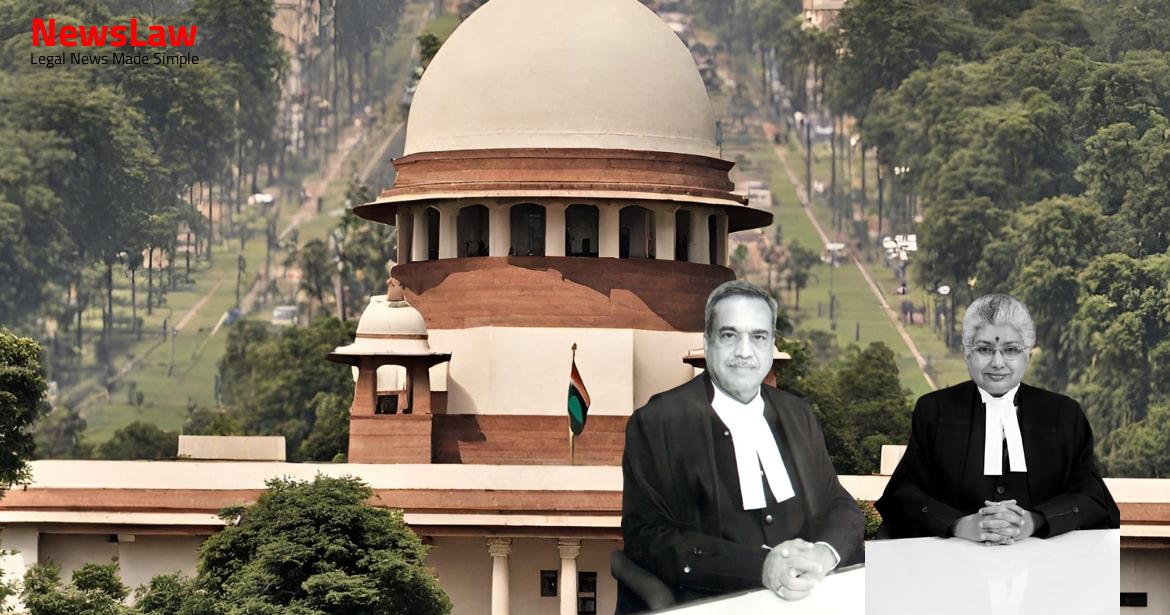Explore the intricate legal analysis conducted by the High Court regarding the retrospective application of customs duty rates in a recent case. The court delved into the provisions of the Customs Act, General Clauses Act, and previous judgments to clarify the interpretation of key legal terms and the timing of events in relation to customs duties. Let’s unravel the complexities of legal provisions and their implications in practical scenarios.
Facts
- The issue before the High Court pertained to the retrospective application of notification 5/2019 issued on 16 February 2019 by the Ministry of Finance.
- The notification imposed a 200% customs duty on all goods originating from Pakistan.
- Importers had already self-assessed and paid duty on their goods before the notification was issued.
- The Customs authorities sought to enforce the enhanced duty rate on these pre-assessed goods.
- The High Court case was titled as Rasrasna Food Private Limited versus Union of India.
- Importers completed self-assessment process before notification of enhanced duty rate was issued
- Importers presented bills of entry before notification 5/2019
- High Court held that the enhanced rate of duty was not applicable
- Importers liable to pay duty applicable at the time of filing bills of entry
- The relevant date for duty determination is the date of bill of entry presentation
- Union of India ordered to release goods on payment of duty declared and assessed
Also Read: Analysis of High Courts’ Jurisdiction and Court Orders Under Article 142
Arguments
- The petitioner argues that the rate of duty on imported goods will be the rate prevalent on the date of the presentation of the bill of entry for home consumption, as per the legal fiction created by the legislature.
- It is asserted that two different rates of duty cannot be applicable on the same day, and once a notification is issued under the Customs Tariff Act, it will apply with effect from the commencement of that date.
- Previous decisions have interpreted the meaning of ‘day’ or ‘date’ in various legal contexts.
- The petitioner’s submission is based on the provisions of the Customs Act regarding the levy and rate of customs duty, emphasizing the importance of the date of presentation of the bill of entry for determining the applicable rate of duty.
- The importers in question met the requirements related to the date of entry of goods and the filing of the bill of entry before the issuance of a new notification, which, according to the petitioner, should determine the applicable rate of customs duty.
- The petitioner refutes the Crown’s argument regarding the interpretation of the word ‘from’ and its application only in specific cases.
- Mr Natraj, representing the Union, argued that Parliament used the phrase ‘on the date’ without specifying a time reference.
Also Read: Electoral Malpractices in Mayor Election
Analysis
- The provisions of Section 15 dictate that the rate of duty and valuation of imported goods is determined based on the date of the bill of entry presentation.
- Regulation 4(2) of the 2018 Regulations specifies when the bill of entry presentation is deemed complete, establishing clarity around self-assessment.
- Section 8A of the Customs Tariff Act empowers the Central government to enhance duty rates, but such notifications are deemed to have prospective effect, not retroactive.
- Notifications issued under Section 8A are akin to delegated legislative power, subject to statutory limitations.
- Parliament’s intent regarding the enactment of laws is gradually adapting to the digital governance era, as evidenced by the transition from analog to electronic formats in official procedures.
- Goods cleared from a warehouse under Section 68 are subject to the rate of duty and valuation in force on the date a bill of entry for home consumption is presented.
- Section 5(3) of the General Clauses Act applies to Central Acts or Regulations, coming into force immediately on the day preceding its commencement.
- Section 11A allows for notifications to cease or be modified by both Houses of Parliament.
- Section 15(1) specifies rates of duty on goods imported or exported.
- Section 46 outlines requirements for presenting a bill of entry electronically for home consumption or warehousing.
- Emergency powers under Section 8A involve immediate action by the Central Government to increase import duties.
- Notifications under Section 8A(1) serve to amend the First schedule and undergo the approval process of Parliament.
- Section 12(1) provides the charging provision for customs duties based on the rates specified in the Customs Tariff Act or other laws.
- The General Clauses Act provisions define terms like ‘Central Act’ and ‘commencement’ in relation to legislative enactments.
- Notifications under Section 11A do not always require Parliament’s approval within a specific timeframe.
- The Court upheld the view that insurance cover commences from the beginning of the day.
- Different High Courts and this Court have dealt with issues related to the enforcement of notifications and the timing of events.
- The Court discussed cases involving interpretation of the expression ‘from a named date’ in various contexts.
- Various judgments were cited to clarify the applicability of rules and regulations in different scenarios and the significance of the timing in legal matters.
- The Court emphasized the need to consider context and circumstances to interpret legal provisions accurately.
- The subsequent publication of the notification bearing 5/2019 did not provide a valid basis for re-assessment.
- The duty was correctly assessed at the time of self-assessment based on the duty in force at that time.
- The appeals were found to have no merit due to the above reasons.
- The power of re-assessment under Section 17(4) was deemed inapplicable as there was no incorrect self-assessment of duty in this case.
Also Read: Balancing Power and Transparency: Electoral Bonds Struck Down, Disclosure Mandated
Case Title: UNION OF INDIA Vs. M/S G.S. CHATHA RICE MILLS (2020 INSC 561)
Case Number: C.A. No.-003249-003249 / 2020



